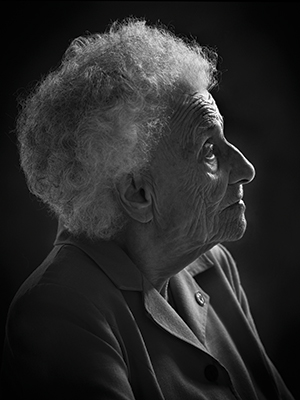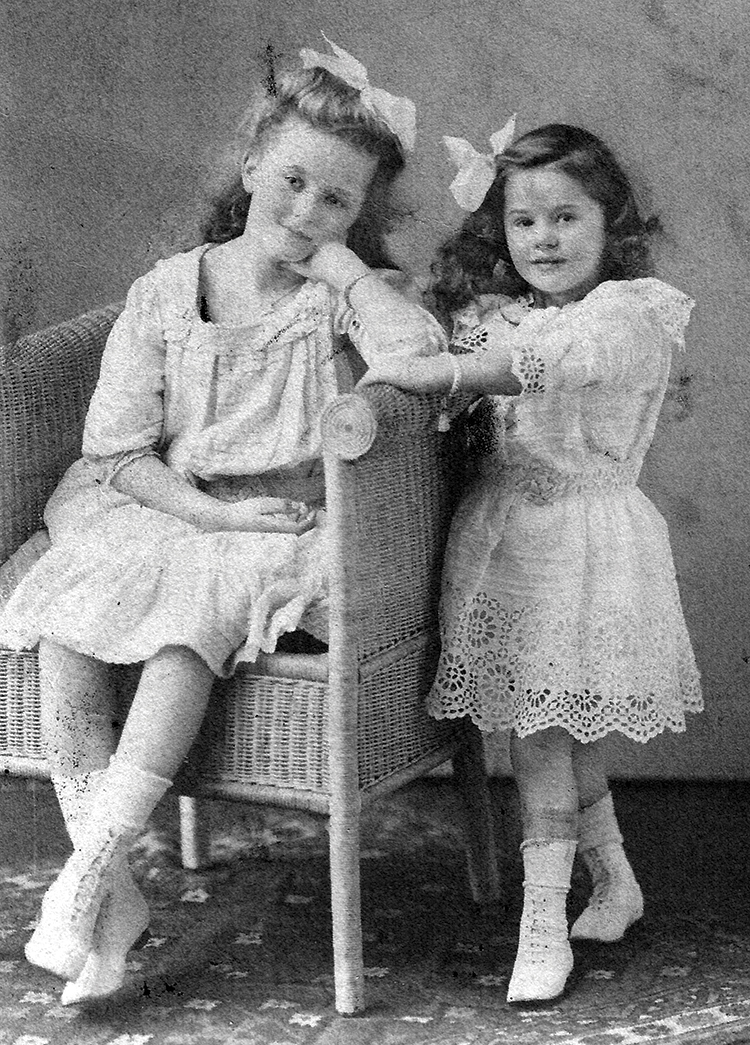Shortly after Margot Strauss Freudenberg escaped the Holocaust, she and her family found safety and hospitality in the historic port city of Charleston, S.C. Since that day in 1940, she has worked to repay the kindness.

Margot Freudenberg Photo by Jack Alterman
And repay it she has, serving countless philanthropic causes—none more so than the American Cancer Society (ACS). Freudenberg, the cancer society’s longest-serving volunteer, founded the ACS’s nationwide network of Hope Lodges, which provide free homes-away-from-home for cancer patients undergoing treatment far from home. Patients also receive information and 24-hour support from trained staff.
Now 104 years old, legally blind and nearly deaf, Freudenberg still recalls fleeing the Nazis in 1939, when an uncle helped her family escape to England. The next year Freudenberg boarded a steamship to New York City with her husband, Walter, and 9-year-old son, Henry, en route to Charleston, where they had relatives.
When the Freudenbergs arrived in Charleston, they had $2.50 and few possessions. They joined a temple and became woven into the Jewish community, a charitable engine of the city. Freudenberg also opened her own physical therapy practice, a rare accomplishment for a woman of that era.
Then, tragedy struck: Freudenberg’s 41-year-old sister died of a brain tumor. The challenges facing patients and their families became deeply personal.
Two decades after that loss, Freudenberg was in New Zealand as part of President Dwight D. Eisenhower’s People to People Ambassadors Program, which was bringing medical professionals together from around the world, when she encountered a residence for cancer patients. The experience planted the seed for the Hope Lodges. When Freudenberg returned to Charleston, she went to see Jane Metts, the president of the local ACS chapter, with an idea to open a similar facility.
The nation’s first Hope Lodge debuted in 1970 in the heart of historic Charleston. Since then, the lodge’s campus has expanded to include four houses with 17 patient rooms adjacent to the city’s two largest hospitals. Today, 31 Hope Lodges throughout the U.S. serve patients and caregivers from all 50 states and more than 75 countries.
Freudenberg, who recently spoke to Cancer Today before her 104th birthday, still keeps up with every expansion and detail at Charleston’s Hope Lodge. In a heavy German accent, she insists: “I haven’t lost my marbles!” True enough. Though her sight and hearing have dwindled, the doorway to her memories remains clear.

Margot Freudenberg (right), age 8, poses with her sister, Hilda, age 11, in 1915. Hilda’s death from a brain tumor in 1945 inspired Freudenberg to find a way to help other patients. Photo courtesy of Larry W. Freudenberg
Q: How did you become involved in caring for cancer patients?
A: I will tell you where it started. I had a sister three and a half years older than I am who we lost at age 41. She died in ’45. Nobody wanted to touch her. It was too dangerous. But my father was a doctor, and he went everywhere [to find a doctor who would treat her]. One doctor in New York said, “Yes, I will operate on her.” It was two days later that she died. She left three boys. That made me aware of cancer more and more. Then, I said, “I have to work for cancer.”
Q: Where did you get the idea for the Hope Lodge?
A: I got a letter from President Eisenhower’s office [to join People to People]. I was assigned to go to Australia and New Zealand with a medical team to learn what they do. Everybody went from one place to the next place, every day to another hospital or clinic.
Everybody was wonderful to us. We were flown from Australia to New Zealand, where we were taken to a residence [for cancer patients]. The Cancer Society of New Zealand had [been given] the facility. It was outdated, but they could do whatever they wanted to do with it. Lots of volunteers came—lots of volunteers! And they made a beautiful residence out of it for 60 patients, plus 60 caregivers. It was an unbelievable experience. I was all choked up.
Q: Then you brought the idea home with you?
A: On the flight from New Zealand to New York, I had plenty of time to write down everything. I wrote it down, and when I came to Charleston, I went to Mrs. [Jane] Metts. I said, “We have to get something like this.”
Q: And you found a house near the hospitals?
A: Somebody wanted it for the Boy Scouts. I knew the gentleman who wanted it for the Boy Scouts, so off I went. I said, “Please don’t take it. You can hang your shingle out anywhere! But we’ve got to be close to the hospital.”
It’s so important when somebody gets surgery for cancer and they need treatment—radiation or whatever—they have to be close to the hospital.
Q: What happened when you first visited the house in Charleston that eventually became the first Hope Lodge?
A: Mrs. Metts was a typical lady. She had on a hat and gloves, and I was in my beautiful shoes. It was a sight to see two people walk inside. It was an old house ” … we went in and my leg fell through the floor, and I had lots of splinters in it. I had to go to the emergency room. The leg was swollen and it hurt, but I didn’t mind. I was just glad to get the house. That was the beginning of the Hope Lodge.
Q: Hope Lodge residents are required to bring a caregiver with them. Why is that important?
A: Sometimes they get so weak, they cannot bathe themselves and cannot dress themselves. They can’t get some food down. So they have a caregiver, and that’s very important, because we are not a hospital.
Q: What do you think of having so many Hope Lodges today?
A: It is so important! When people are operated on and live 150 miles away and come back for the treatment, they cannot take it. The Hope Lodge is close by. It’s a home-away-from-home. And having a caregiver there [means] they are not only with strangers. This makes it much easier, not to be alone.
Q: Do you feel like you’re leaving a legacy?
A: I feel good knowing the good Lord has blessed me.
Q: How is your health?
A: Well, I’m 103 years old and I’m legally blind and deaf, and I gave up driving about four years ago when I couldn’t see the white line on the pavement anymore. I turned around and parked the car. No accident—I’m so grateful for that. But without a car, you’re stranded. Now, being so blind, somebody took me by the Hope Lodge so I could see from the outside. But I didn’t see it. However, I feel wonderful. ” … We have so many people in Charleston who are helping with the Hope Lodge.
Q: How does it make you feel to have 31 Hope Lodges around the country today?
A: I feel so wonderful, I can’t tell you! I’m so old. I’m 103, and I never thought I would live to see it [thrive]. But I lived to see it. Now it’s so beautiful.
Cancer Today magazine is free to cancer patients, survivors and caregivers who live in the U.S. Subscribe here to receive four issues per year.




